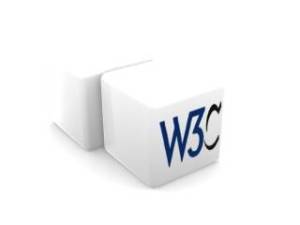“For the last four years we have been working with the W3C to try and restart the Research and Development Interest Group which was previously, and ably, chaired by Markku Hakkinen. I’m glad to say that after much discussion within the W3C the group has been relaunched as a working group. This new group has a two-year charter, had its first weekly meeting in June, and has already chosen its first topic to be focused on. Here I’d like to introduce the group and the way in which it works, and encourage any researcher with an interest in accessibility to contribute via the mailing list, or to jump in and participate as a core working group member.”
 The mission of the Research and Development Working Group (RDWG), part of the WAI International Program Office Activity, is to increase the incorporation of accessibility considerations into research on Web technologies, and to identify projects researching Web accessibility and suggest research questions that may contribute to new projects. The desired outcome of more research in Web accessibility and awareness of accessibility in mainstream Web-related research should decrease the number of potential barriers in future Web-related technologies.
The mission of the Research and Development Working Group (RDWG), part of the WAI International Program Office Activity, is to increase the incorporation of accessibility considerations into research on Web technologies, and to identify projects researching Web accessibility and suggest research questions that may contribute to new projects. The desired outcome of more research in Web accessibility and awareness of accessibility in mainstream Web-related research should decrease the number of potential barriers in future Web-related technologies.
This mission is complementary to the work of other Web Accessibility Initiative (WAI) groups within the WAI Technical Activity and the WAI International Program Office Activity. The RDWG was originally chartered in 2001 and has been rechartered once since then in order to continue exploring accessibility considerations in Web technologies. It is now a Working Group rather than Interest Group in order to recognize the ongoing commitment needed by a core group of participants, and the work required to produce the planned deliverables.
The RDWG Wiki provides an annotated catalog of research topics. This publicly available repository of information is developed collaboratively by participants of RDWG. The RDWG select research topics from this repository to further explore through teleconference seminar (Webinar) events. Our current topic is ‘Benchmarking Web Accessibility Metrics’ lead by Markel Vigo, Giorgio Brajnik, and Joshue O’Connor. We feel there are many uncovered areas for those that want to conduct research on Web accessibility metrics; indeed, metrics quantify qualities. In order to measure more abstract qualities, higher level metrics are built upon other metrics and parameters are often used. For instance, readability metrics take into account the number of syllables, words and sentences to measure the complexity of a text. Similarly, metrics aiming at measuring Web accessibility have been built upon some other metrics. For instance, the failure-rate metric computes the ratio between number of accessibility violations over the number of failure points. If we define Web accessibility as the quality by which any user can operate Web content without barriers of any kind, accessibility metrics aiming at measuring this phenomenon can take two approaches: (1) Accessibility in terms of conformance to accessibility guidelines; and (2) Perceived accessibility. As guidelines conformance does not necessarily entail accessibility in use. Most of the existing metrics are of the former type and are mainly built upon metrics produced by automatic testing tools such as the number of violations, their WCAG priority etc. It is our aim to identify the relevant questions surrounding this topic and provide direction as to the research which will be required to answer these questions and therefore expand the area.
Options for contributing to the work of the RDWG include (1) Contributing through the RDWG mailing list; and (2) Contributing as a “participant in Good Standing”, which is a W3C term indicating that a participant is satisfying the participation requirements of the W3C. Participating in the RDWG enables you to influence the development of RDWG deliverables, and you and your organization will be listed as contributors to the deliverables of the RDWG where appropriate. Participant status requires a commitment on your behalf to support the work of the group. Teleconference meetings are scheduled every Thursday at:
- 15:00 to 16:00 Greenwich Mean Time (GMT) (16:00 to 17:00 BST)
- 17:00 to 18:00 Central European Time (CET)
- 11:00 to 12:00 North American Eastern Time (ET)
- 08:00 to 09:00 North American Pacific Time (PT)
More details on participation can be found at: http://www.w3.org/WAI/RD/participation.html
Finally, I’d like to encourage you to participate in our first Webinar. The group wishes to define and benchmark Web Accessibility Metrics, scope their extent and magnitude, and provide a route map for future research and development. In this case we invite white paper submissions – of approximately 1000 words – from both academia and industry concerning all aspects of Web Accessibility Metrics with particular focus on: (1) measuring ‘accessibility in terms of conformance’ to accessibility guidelines; and (2) measuring ‘accessibility in use’.
We encourage densely referenced, concise contributions based on sound scientific evidence covering work already accomplished, works in progress, and future avenues of investigation. These should be authoritative reports or guides that will help us to form our opinions and educate future readers. All submissions will be reviewed by our Scientific Committee, and those which are accepted will be published – in an attributable form – as part of the ensuing RDWG Official W3C Note.
You can find all the information to participate, as it becomes available, at the following links: